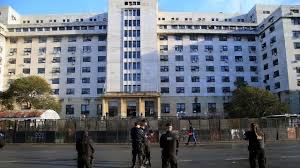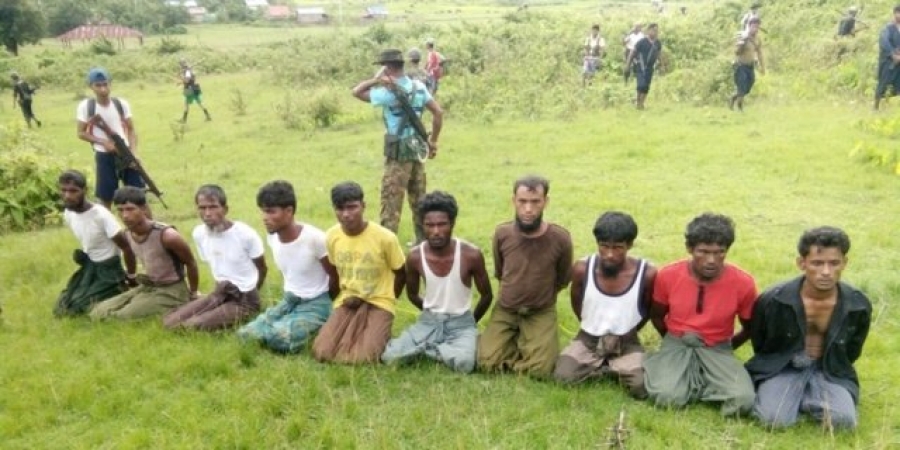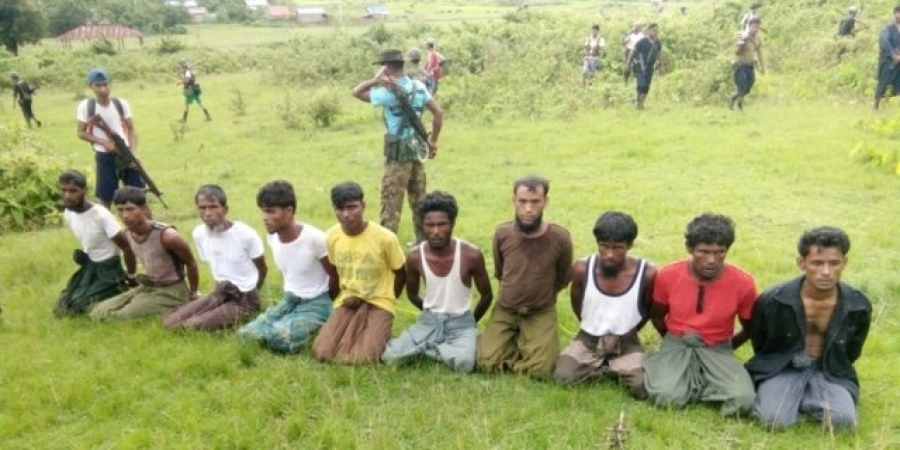On 26 November 2021 an Argentinean court of appeal ordered an investigating judge to proceed with the investigation of crimes committed against the Rohingya in Myanmar (see here, here and here). The decision was welcomed by civil society groups as a vital step towards accountability for such crimes (see here and here). While I share this positive reaction to the decision, I am cautious about the prospects of the investigation and eventual prosecution of said crimes, given the considerable hurdles likely to be faced by the competent authorities: collecting evidence is going to be particularly challenging during the investigation; the alleged mastermind behind the attacks on the Rohingya enjoys immunities from the jurisdiction of third States; the proceedings are based on the principle of universal jurisdiction, but this legal basis for the exercise of jurisdiction might successfully be challenged at trial; and suspects might not be arrested and surrendered to Argentina, while it is also unlikely that they surrender voluntarily, and, in that case, a trial in absentia would not be possible.
In this post I will first set out in broad fashion the procedural background to the decision of the appellate court, before moving to making some considerations on the above-referred potential obstacles.
Procedural background
On 13 November 2019, the Burmese Rohingya Organisation UK submitted a complaint to the Argentinean judiciary concerning acts of torture, enforced disappearance, sexual abuse, and murder against the Rohingya people in Rakhine State, Myanmar. According to the prosecutor in charge of the complaint, the acts described in the complaint may qualify as genocide or crimes against humanity, and Argentina could exercise universal jurisdiction over those crimes by virtue of Article 118 of the Constitution of Argentina. Yet he advised the investigating judge to reject the complaint, because the ICC is investigating the same facts, and, under this circumstance, the exercise of universal jurisdiction would be incompatible with the subsidiary nature of this type of jurisdiction and with the principle of ne bis in idem. The investigating judge agreed with the arguments put forward by the prosecutor, expressed concern about the extra difficulties that an investigation of facts occurred in a State so far away and culturally diverse from Argentina would entail, and for these reasons she rejected the complaint. However, the appellate court revoked the decision of the investigating judge because the facts referred to in the complaint are different from the facts investigated by the ICC, which is correct because the ICC is not investigating crimes completed in the territory of Myanmar (see here). Accordingly, it ordered the investigating judge to further proceed with the investigation.

Collecting evidence may prove particularly challenging during the investigation
The international fact-finding mission on Myanmar set up by the UN Human Rights Council reported the occurrence of gross human rights violations in Kachin, Rakhine and Shan States since 2011. The mission reported that some of the violations may amount to genocide, crimes against humanity or war crimes, and that Myanmar’s armed forces (the ‘Tatmadaw’) was the main perpetrator of crimes in the three States. Moreover, the mission drew up a non-exhaustive list of alleged perpetrators that includes the Commander-in-Chief of the Tatmadaw Min Aung Hlaing, who has also been the Prime Minister of Myanmar since 1 February 2021, following a military coup on that date.
With the persons allegedly most responsible for the crimes against the Rohingya now governing Myanmar, and with the bulk of the victims living in refugee camps in neighbouring Bangladesh (see here), collecting documentary evidence and testimonies might prove a daunting task. In fact, the military junta is highly unlikely to cooperate with the investigation, while bringing witnesses to testify in Buenos Aires might be unfeasible for the investigating judge, if she is not provided with sufficient financial resources to conduct the investigation. Having witnesses testifying by videoconference from refugee camps in Bangladesh may be an option, but it would not be free from technical and logistical challenges, such as defective internet connectivity and the nine-hour time difference between Argentina and Bangladesh, which may create problems for scheduling and holding effective hearings. It should also be noted that documents and testimonies will need to be translated into Spanish—the official language of Argentinean courts—and that translations are costly and time consuming, which would add even more complexity to the investigation.
Immunities from domestic jurisdiction
According to the complainant, the complaint implicates “much of the junta’s senior leadership, including Min Aung Hlaing, the Commander-in-Chief and self-appointed Prime Minister” (see here). If Argentina recognises the junta as the legitimate government of Myanmar, then the investigating judge could not issue a summon to appear or a warrant of arrest against Min Aung Hlaing without breaching the obligation to respect the personal immunity of an incumbent head of government from the jurisdiction of third States (on the immunities of heads of State or government or ministers of foreign affairs see this judgment of the ICJ). True, personal immunity would not be a problem if he no longer is the incumbent head of State, head of government or minister of foreign affairs at the time the summon to appear or the warrant of arrest is issued, and it would not be a procedural barrier either if a summon or a warrant is issued against any other individual not entitled to immunities.

Universal jurisdiction might be successfully challenged at trial
The complaint is based on the principle of universal jurisdiction, as the crimes under international law at stake took place abroad and were committed by foreigners against foreigners. The complainant, the judge of first instance and the court of appeal believe that universal jurisdiction is rooted in Article 118 of the Constitution of Argentina, a provision that reads as follows: “The trial of all ordinary criminal cases not arising from the right to impeach granted to the House of Deputies, shall be decided by jury once this institution is established in the Nation. The trial shall be held in the province where the crime has been committed; but when committed outside the territory of the Nation against public international law, it shall be held at such place as Congress may determine by a special law.” The last sentence of this constitutional provision is not about legal bases for the exercise of extraterritorial legislative jurisdiction, but about allocation of competences among the courts of the land. Stated differently, the provision stipulates that criminal jurisdiction is to be exercised by the courts of the province where the crime was committed, but, when a crime under international law is committed abroad, jurisdiction is going to be exercised by the courts of the land specified in a law to be enacted by Congress.
The legal bases for the exercise of criminal jurisdiction are laid down in the Penal Code of Argentina (see Article 1), which limits the legal bases to the territoriality, protective and nationality principles. In any event, the Penal Code does not criminalise any crime under international law. Certain crimes under international law were incorporated into domestic law in 2007, with the adoption of the law on the implementation of the Rome Statute of the International Criminal Court (Law No. 26.200, Article 2). The legal bases for the exercise jurisdiction over those crimes are to a large extent similar to the principles of jurisdiction set out in the Penal Code (i.e., territoriality, protective and the nationality principles, albeit the latter to a greater extent than in the Penal Code; see Article 3). Article 3 of Law 26.200 stipulates that this law shall also apply in the circumstances provided for in other treaties to which Argentina is party. Thus, for example, Argentina is a State Party to the 1949 Geneva Conventions, which provide for universal jurisdiction over grave breaches of the Conventions; hence, an Argentinean court could validly exercise universal jurisdiction over said breaches. However, the 1948 Genocide Convention, to which Argentina is party, does not provide for universal jurisdiction; and, as far as crimes against humanity are concerned, there is not yet a framework convention to rely upon. The UN Convention against Torture and Other Cruel, Inhuman or Degrading Treatment or Punishment does mandate the applicability of universal jurisdiction (see Article 5(2)), as the UN Convention on Enforced Disappearances does (see Article 9(2)).
It is thus doubtful that the principle of universal jurisdiction can be validly applied on the basis of Article 118 of the Constitution of Argentina alone. The very few decisions of Argentinean courts relying on that sole provision to exercise universal jurisdiction have not been tested at trial, let alone by the Argentinean Supreme Court of Justice (those decisions are referred to here). Therefore, if there ever is a trial in Argentina against an accused for crimes against the Rohingya, the applicability of the principle of universal jurisdiction on the sole basis of Article 118 of the Constitution of Argentina might not resist a legal challenge, unless alternative and more compelling legal bases are put forward, for example under customary international law, the UN Convention Against Torture and/or the UN Convention on Enforced Disappearances.
There may be no trial, even if the investigation proves to be successful
Finally, yet importantly, it should be noted that no trial could be held in the absence of the accused. The suspect must have been arrested and surrendered to Argentina, or the suspect must have surrendered voluntarily in the first place, for a trial to proceed, for the reason that, pursuant to the Code of Criminal Procedure of Argentina, trials in absentia are not permitted.
Conclusion
It is good news that an Argentinean court shall investigate the crimes under international law committed against the Rohingya. It is also good news that Argentinean courts are starting to assume universal jurisdiction over crimes under international law slowly but surely. The investigative judge is going to face very serious practical and legal hurdles, but these are not unsurmountable: witnesses may testify by videoconference; official translators may work pro bono; the international fact-finding mission on Myanmar could provide the investigating judge with relevant information; compelling legal arguments in support of universal jurisdiction may be found. On the other hand, such a complex investigation may take several years, and a positive outcome of the investigation would not entail that a trial will ever take place.
Against this background, my take home message about these proceedings is the following: let us be happy for this news, but also let us manage our expectations.
Fabián Raimondo, Executive Editor, Maastricht Blog on Transitional Justice.
